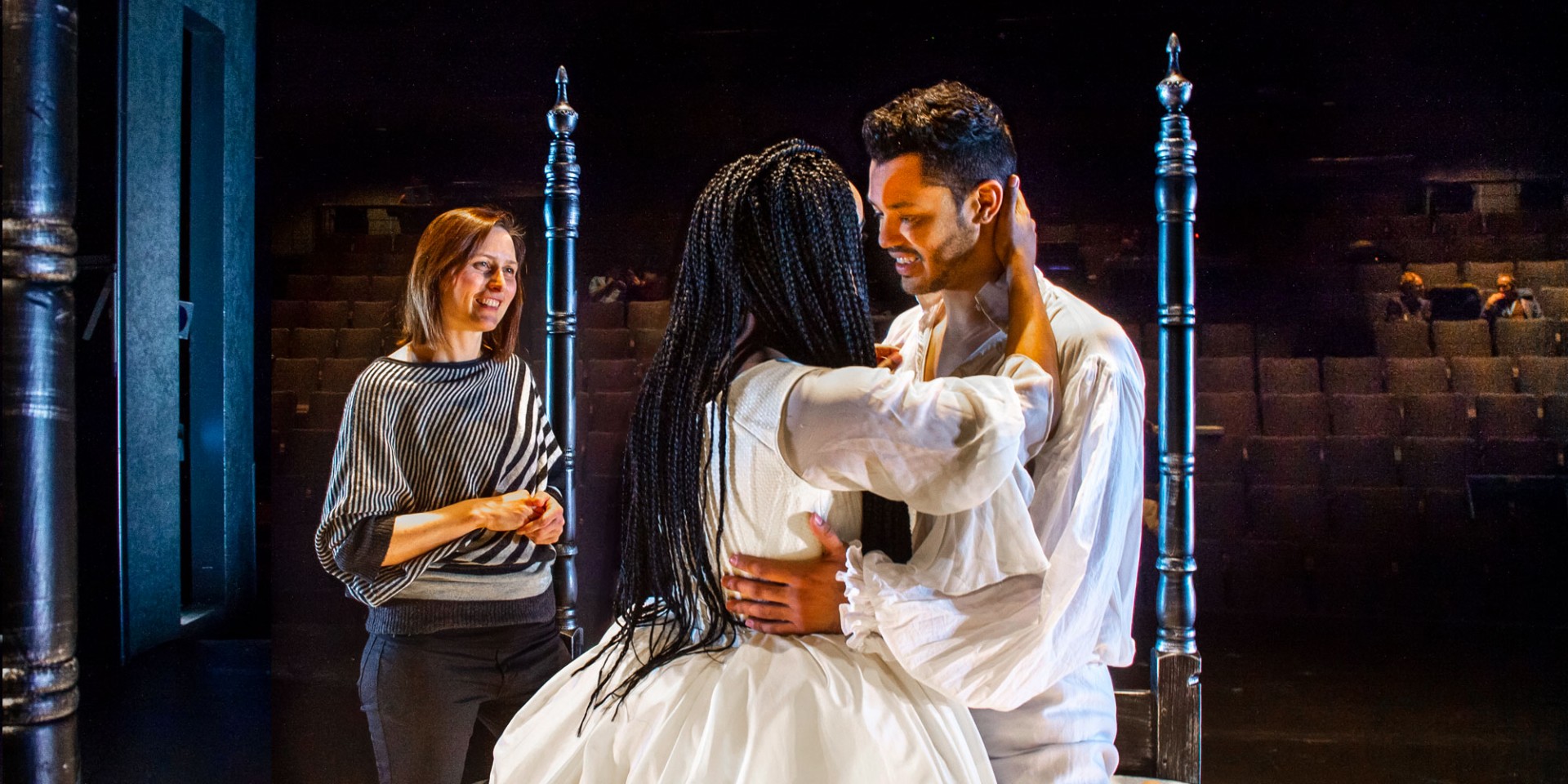
Intimacy director Janine Waddell (left) guides U of A drama students Helen Belay and Diego Stredel as they rehearse a crucial love scene in the upcoming Studio Theatre production of John Dryden's "All for Love." (Photo: Richard Siemens)
If you haven't already, be sure to check out our interview with Janine Waddell who discusses her role as Intimacy Director for Studio Theatre's All for Love (February 7-16, 2019, Timms Centre for the Arts).
Here now are BFA Acting students and All for Love cast members, Melanie Bahniuk and Chris Pereira, giving the actor perspective on the importance of an Intimacy Director.
 Melanie Bahniuk (BFA Acting, '19)
Melanie Bahniuk (BFA Acting, '19)
"To me, the main thing when it comes to intimacy direction is safety and security. It is a relatively new art form in theatre around the world, but it was implemented because of the horror stories you would hear about actors not feeling safe having to do an intimate scene in a show.
The form itself allows for an environment where everyone in the room (i.e actors, directors, choreographers, etc.) are able to feel safe. It enables open communication between all parties to create choreography that is comfortable for everyone involved. The intimacy director is able to choreograph an entire sequence -- whether it be for a sex scene or a rape scene -- and provide safe choreography so the actors themselves know what's coming and don't expect anything different.
Our theatre world today is in a huge transition for the better and I think this is such an important step toward absolute safety. Actors and everyone involved in a production should be able to freely explore without feeling like their boundaries have been violated. It encourages open communication between everyone to allow for a safe space."
 Chris Pereira (BFA Acting, '19)
Chris Pereira (BFA Acting, '19)
"In the first year of our program, we were lucky enough to get to do an intimacy choreography workshop with Siobhan Richardson. The workshop started with the story of a previous Fantine from the musical, Les Misérables, and how after she had finished her time on the show, she would experience near breakdowns at the exact same time every evening. Later, she realized she was carrying the trauma of her character into her everyday, and these episodes correlated with the exact time she would have Fantine's giant breakdown on stage.
This story illustrates the fundamental reason for intimacy choreography being essential: the very real need to separate the experiences of the character from that of the actor in the pursuit of both mental health and career sustainability. Through intimacy direction, the actor is provided with agreed upon structures that allow for autonomy that doesn't exceed the comfort of their acting partners. As a result, the tensions that might surround intimacy are allowed to subside, giving birth to freer play.
Intimacy choreography doesn't only pertain to intense subjects such as sex and violence, but it encompasses the entire spectrum of human relationship, and therefore intimacy. I strongly believe that because theatre is about telling human stories, and to be human is to exist in relation with the other, intimacy direction is merely another (and very essential) way of aiding the actor in telling the most honest version of these stories as possible."

All for Love
By John Dryden
February 7 - 16, 2019
(No Show February 10, Matinee February 14 at 12:30 PM)
Timms Centre for the Arts
Tickets & Production Info